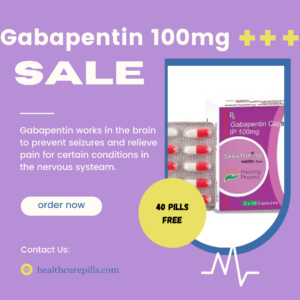Nerve pain, also known as neuropathic pain, can be a debilitating condition that affects millions of individuals worldwide. Understanding the causes, symptoms, and effective treatments for nerve pain is crucial for managing this often chronic and complex issue. This article aims to delve into the various aspects of nerve pain, providing insights into its origins, impact on daily life, and the array of treatment options available to alleviate discomfort and improve quality of life for those experiencing this challenging condition.
Introduction to Nerve Pain
Nerve pain, also known as neuropathic pain, is like that annoying friend who never knows when to leave. It’s a sensation that can range from tingling and burning to shooting pains, making itself right at home in your body.
Defining Nerve Pain
Picture this: your nerves are like messengers, sending signals from all over your body to your brain. When these nerves get a little too chatty and start sending false alarms, that’s when nerve pain barges in, uninvited.
Common Causes of Nerve Pain
Nerve pain isn’t picky; it can crash your party for various reasons, from medical conditions throwing a wild rave in your nervous system to physical trauma causing chaos.
Medical Conditions Leading to Nerve Pain
Conditions like diabetes, multiple sclerosis, and even those sneaky infections can conspire to make your nerves go haywire, leading to nerve pain that overstays its welcome.
Physical Trauma and Nerve Damage
Remember that time you bumped your elbow and felt a zing shoot down your arm? That’s your nerves, not being shy about letting you know they’re not fans of being bumped, bruised, or compressed.

Symptoms and Diagnosis of Nerve Pain
Detecting nerve pain is like playing detective; you need to be on the lookout for the sneaky symptoms it leaves behind and run some tests to catch it in the act.
Recognizing Nerve Pain Symptoms
From sharp, stabbing pains to that persistent numbness or tingling feeling, nerve pain isn’t one to hide in the shadows. It wants to be noticed, loud and clear.
Diagnostic Tests for Nerve Pain
When the suspect is nerve pain, your doctor might call in reinforcements in the form of nerve conduction studies or imaging tests to get to the bottom of things. It’s like giving nerve pain a proper interrogation.
Impact of Nerve Pain on Daily Life
Nerve pain isn’t just a one-night stand; it can stick around, affecting not just your physical well-being but also your emotional state and relationships.
Physical and Emotional Effects
When nerve pain decides to crash on your couch, it can bring along its friends like sleep disturbances, anxiety, and even depression. It’s like a package deal you never asked for.
Challenges in Work and Relationships
Dealing with nerve pain can feel like trying to juggle flaming torches while walking on a tightrope. It can strain relationships and turn work into a battleground where focus battles the distraction of pain.
 Gabapentin 800
Gabapentin 800
Treatment Options for Nerve Pain
Dealing with nerve pain can feel like dealing with a clingy ex – persistent and unwelcome. But fear not, there are ways to kick it to the curb.
Medications for Nerve Pain Relief
When it comes to fighting nerve pain, medications can be your trusty sidekick. From over-the-counter pain relievers to prescription drugs, the right medication can help you show that pain who’s boss.
Physical Therapy and Rehabilitation
Think of physical therapy as your nerve pain’s personal trainer. Through targeted exercises and hands-on techniques, physical therapy can help strengthen your body and kick nerve pain to the curb.
Alternative Therapies for Nerve Pain
If traditional treatments aren’t your jam, fear not. Alternative therapies offer a different flavor that might just be the ticket to soothing your nerve pain.
Acupuncture and Acupressure
Acupuncture and acupressure are like the zen masters of nerve pain relief. By targeting specific points on your body, these ancient practices can help restore balance and ease your nerve pain woes.
Herbal Remedies and Supplements
Sometimes nature knows best. Herbal remedies and supplements like turmeric, magnesium, or capsaicin can offer a natural approach to calming your nerve pain and helping you feel like yourself again.
Prevention and Management Strategies
Preventing nerve pain is like preventing a bad hair day – it takes a little effort, but it’s totally worth it. Here are some strategies to keep that pesky nerve pain at bay.
Lifestyle Changes to Alleviate Nerve Pain
From getting enough sleep to staying active and maintaining a healthy diet, small lifestyle changes can make a big difference in managing your nerve pain and keeping it in check.
Stress Management and Mind-Body Techniques
Stress and nerve pain are like frenemies – they feed off each other. Mind-body techniques like yoga, meditation, or deep breathing exercises can help you kick stress to the curb and keep nerve pain at a distance.
So there you have it – nerve pain doesn’t have to be the villain in your life story. With the right treatment, prevention strategies, and a touch of humor (and maybe a massage or two), you can show nerve pain who’s boss and write your own happy ending. Cheers to a future free from nerve pain!
Conclusion and Future Outlook
In conclusion, gaining a comprehensive understanding of nerve pain is essential in effectively navigating its challenges and seeking appropriate care. By recognizing the causes, symptoms, and available treatments for nerve pain, individuals can make informed decisions to manage their condition and improve their overall well-being. Looking ahead, continued research and advancements in pain management hold promise for enhanced treatment options and improved outcomes for individuals living with nerve pain.